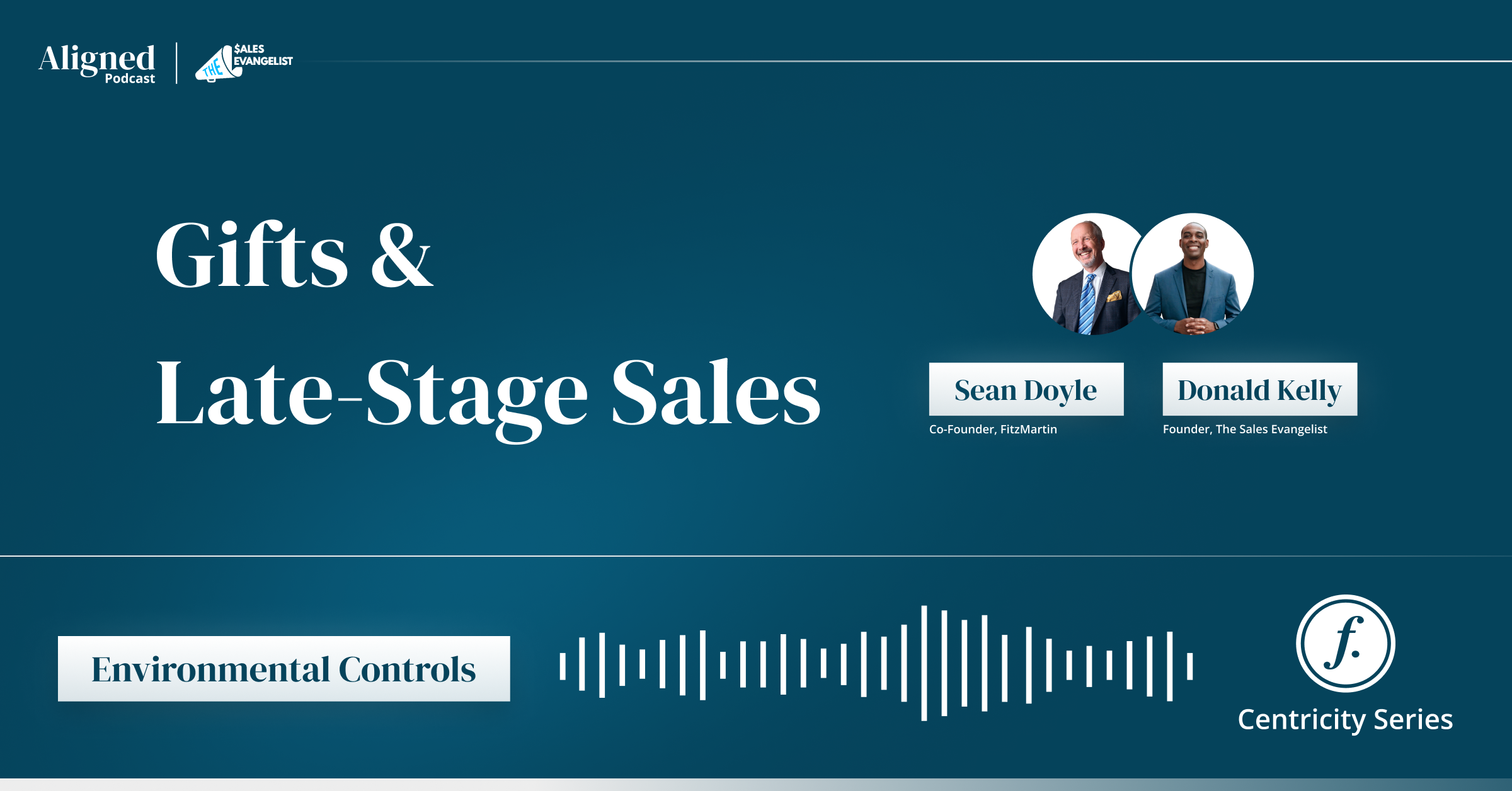
Environment management isn’t limited to emotional and psychological strategies to secure a deal. In many cases, using physical gifts can help drive a prospect further down the sales pipeline (after all, who doesn’t like a free gift, right)? Gift-giving, however, can quickly swell out of hand if the strategy is overused or used at an improper time. Managing your purchases and reserving them for opportune occasions is the key to maximizing earning potential while helping close the long-awaited deal.
When to Implement Gift-Giving
Above all, the most critical aspect of this environmental control is understanding the proper time to offer a gift to a prospect. Gifts should be reserved for late-stage prospects with whom the seller has already developed a relationship.
Physical items do not correlate to a relationship; they simply add to, enhance or exemplify the existing one.
If a seller were to offer gifts to every cold prospect as soon as possible, it wouldn’t carry the same weight or thoughtfulness that a unique, well-thought gift would to a late-stage process (not to mention that it would shatter any seller’s budget).
In that vein, the more personalized the gifts, the better. Assuming a seller does wait until a prospect enters the final stages of a sales cycle, the seller should know relatively intimate details about the buyer and their company, allowing the seller to offer a personalized gift that demonstrates the existing relationship. While the classic round of golf or box seats to a pro football game are great options, remember that those gifts don’t correlate to every buyer. The more powerful gifts are the ones that the buyer will enjoy or appreciate the most, not necessarily those that are the most expensive. It must be remembered, however, that in professional B2B selling, gift-giving should not be too intimate. While the gift should demonstrate that the seller knows the prospect, it should not cross a line that might upset the buyer.
Determining the Best Gift for Your Buyer
So how does a seller ensure the gift is personalized enough without crossing the much-too-personal line? By being thoughtful and utilizing the information at their disposal to best understand the buyer. At this stage of the sales process, the seller should be armed with plenty of knowledge about the buyer to have a clear idea of something they would appreciate. With this strategy in mind from the very beginning of the sales process (i.e., the seller knowing they will likely present the prospect with a gift during the late stages of the buying cycle), the seller should have already composed a detailed list of notes from conversations and even research they’ve conducted that will help them choose a personalized gift unique to that specific buyer when that time inevitably comes. And, as already mentioned, the gift being something that would significantly impact the buyer’s perception of the relationship should trump the potential need of presenting a gift that is expensive but not necessarily enjoyable to the specific buyer.
Suppose you’re trying to determine a gift for an existing prospect (and have not done the prerequisite research because you hadn’t yet read this blog post to gain that invaluable insight). In that case, practical gifts with a clear or actionable value in everyday life are a great idea. Even with only the faintest knowledge about a prospect, investing in practical gifts is a safe but still welcome way to demonstrate the value you want to communicate.
Writing a hand-written note in tandem with a gift is a great way to further illustrate the value you place in the relationship. It is a powerful way to integrate personalization if the gift is not inherently unique to the buyer.
The Benefits of Gift-Giving
At the end of the day, gift-giving is a strategy that encourages the prospect to act—the innate idea of reciprocity makes it more likely that the deal will close if the prospect has recently been given a valuable gift from the seller. Gift-giving does more than encourage a buyer to reciprocate the gesture, however. A personalized gift demonstrates that a seller has been listening to what the buyer has to say. If the buyer made an offhand comment about something they enjoy and the seller purchased something related to that, the buyer will know that the seller values the existing relationship.
Remember: The gift itself will not improve the relationship between a buyer and seller—it will amplify what is already there. The more personalized the gift is to the buyer, the more impactful it will be for the seller and the more conducive to moving toward a sale. Evaluate your sales cycle and determine at which point in the process gift-giving would be most beneficial to your organization. Chances are, you’ll find gift-giving to be a powerful method that drives revenue and conversions for your organization.
—-
Interested in learning more about environment controls and specific strategies that could positively impact your bottom line? Check out part one and part two of this three-part series.